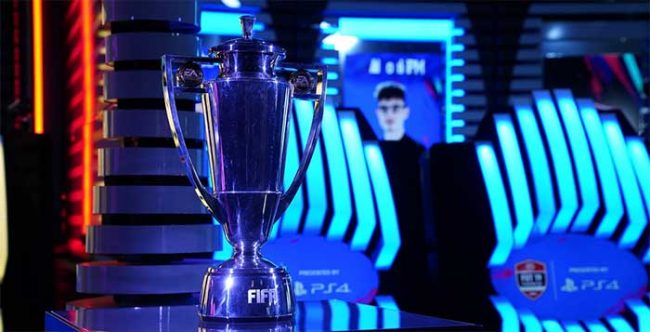As the world’s most popular sport, football has been the subject of countless video games over the years. Among them, the FIFA series from EA Sports has dominated the market, setting the standard for footy gaming experiences.
Yet FIFA are trying out new ways to continue their dominance. A batch of new AI-powered mobile games are aiming to revolutionize sports gaming, which would be a welcome boost for the organization after their split from gaming partner EA.
With the post-EA era upon us, the question remains: Can this new game live up to the hype? Or will it be just another electronic flash in the pan?
What is an AI-powered football game exactly?
Video games as we know them are about to change dramatically. New AI technology will add a wide new range of features to the game-playing experience to create a whole new type of game.
Central to this is blockchain technology, which FIFA’s impending release is said to have. In terms of gameplay, blockchain’s transparency and immutability could ensure that all game actions and results are recorded on a public ledger, making it impossible to cheat or manipulate the game’s outcome. In terms of fairness, it would put it on a similar level to the gambling industry, where even free slots are subject to a random number generator (RNG) to ensure every player gets a fair roll of the dice, so to speak.
These games will also feature NFTs, allowing players to buy and sell digital assets such as player cards and team logos. In AI League’s case, it’s part of FIFA’s broader push into the world of blockchain technology, with the organization exploring various use cases for the tech in soccer, including ticketing, digital identity, and merchandise. The NFTs will create unique, collectible assets for fans, while also generating new revenue streams for their developers.
Finally, players will also be able to create their own elaborate game strategies thanks to real-time data gathered via machine learning. This will add several layers of complexity that traditional video games don’t have.
AI League and FIFA’s other AI footy titles
As the first in a string of releases, FIFA launched the open beta version of FIFA’s World Cup AI League, a 4v4 soccer strategy game, in April. The game’s use of AI for its characters, cosmetics, and gameplay elements is one of the first test cases of its kind.
Web3 AI firm Altered State Machine are the brains behind the release, creating an expanded version of the World Cup prediction game launched in November. The one downside for FIFA fans is that it doesn’t feature famous soccer stars like Cristiano Ronaldo or Lionel Messi, who have both signed marketing and sponsorship deals with crypto industry companies.
That said, the characters in AI League have a cartoonish appearance that might be attractive for younger players. For older players, it uses AI to control the characters’ movements and determine their strengths and weaknesses. Players serve as team coaches and owners, similar to fantasy football or other sports management games.
Further down the production line are several other AI-powered releases based around the theme of international soccer. Uplandme is one example. This will be a blockchain-based metaverse that allows players to purchase and sell virtual properties. They can obtain official FIFA World Cup digital assets, such as legendary video highlights of the tournament, and visit the replica FIFA World Cup Lusail Stadium and Village. To add to this, players can purchase items representing their colors to customize their homes, trade assets with friends, and win various prizes.
Matchday will be another option for AI gaming enthusiasts. A highly engaging social prediction game based on football cards, it will target the emotional highs of football fandom. The game’s essence will not only be about getting predictions correct, but also being the best among friends, which will surely bring out people’s competitive nature.
Finally, Phygtl will be a fan engagement platform that takes fandom to the next level. Fans will be able to co-create the first fan-generated digital reward system, with immersive experiences that they can enjoy from the comfort of their own homes. They can also own a limited fragment of this virtual world and attach their favorite FIFA World Cup pictures and video moments, resulting in a digital representation of collective fan experiences.
A giant step into the future
FIFA’s move into the futuristic world of AI gaming is just part of a broader movement that will see the new technology transform how we play. From more intelligent and challenging enemies in shoot-em-ups to more interactive environments in platform games, we are seeing just the start of a gaming revolution.
What will games look like in five years? Well, that’s a question that nobody really knows the answer to.
